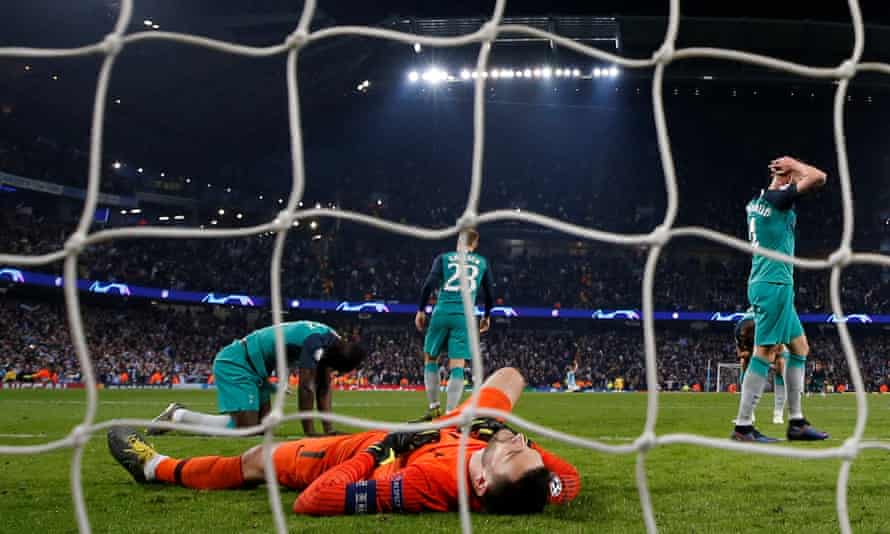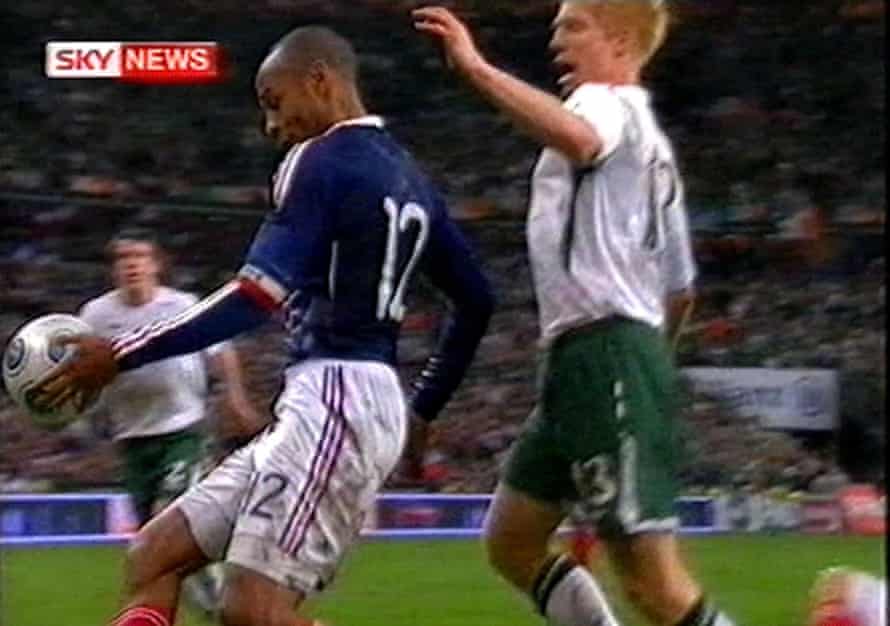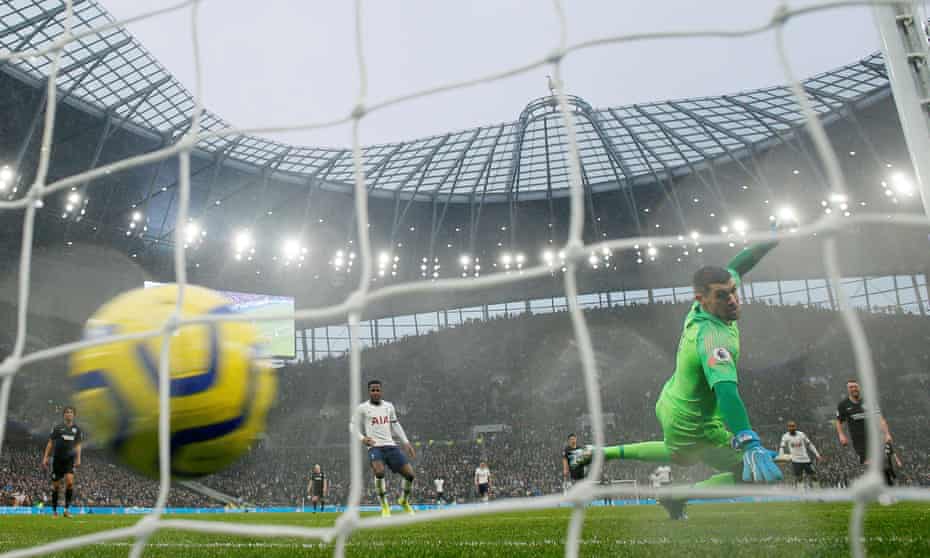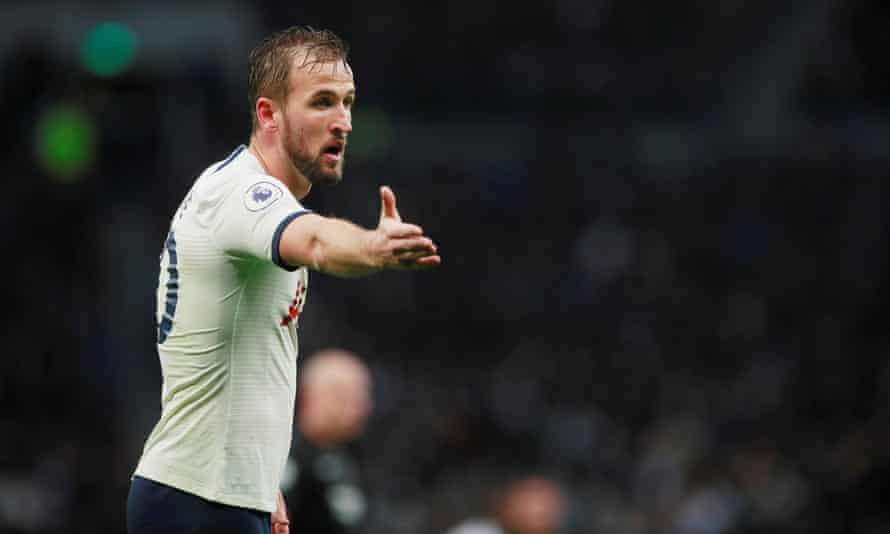When Manchester City scored a brilliant winning goal in the last seconds of a Uefa Champions League quarter-final against Spurs in the spring of 2019, at least two spectators who were present at the game abandoned watching.
Out in the stands, an overcoated City fan hurried for the exits, delighted with his last-gasp win and keen to beat the rush home. At the same time, down on the substitutes’ bench, Moussa Sissoko, a Spurs player who’d been withdrawn through injury, was so distraught that he turned his back on the game and hobbled to his dressing room alone.
I was watching on TV with friends, all of us Spurs fans, all of us devastated. I had instinctively picked up a kitchen chair as soon as the goal went in. Not, I think, with any real intention of throwing it at the TV, more to hide the horror of what was happening from my eyes. City celebrated for 50, 60 seconds. There were knee-slides. Hugs. Prayers of gratitude. When the ref blew his whistle we presumed he was ending the match.
In fact, a slow-motion replay had been reviewed at some length and City were judged to have been a little offside. The goal was written off. A basic football truth – they have won, so we have lost – was turned on its head. My minute of misery was rewound and deleted.
This was disorientating. VAR, that is, video assistance for referees, carried out by video assistant referees (confusingly, the acronym has come to stand for both the act and the people), had been part of world football since about 2017. There had been some important decisions helped along or reversed by VAR at various tournaments, but nothing on the scale of City’s phantom goal. I put down the kitchen chair, very carefully, and hugged it. I was aware of a discordant note, mixed in with the relief, that maybe something fundamental about football was different now.


Meanwhile, that overcoated City fan had found his way to the car park. Poor guy. When a TV reporter pushed a microphone in his face and asked for a reaction to the disappointing news, he said: “Why would I be disappointed? We won!” Informed otherwise, the man’s good cheer collapsed so completely that video footage of the exchange went viral. As for Sissoko, alone in his dressing room, he was found by a colleague who screamed: “Incredible!” Such was the rush that followed, Sissoko said later, he forgot he was injured. He sprinted back to the pitch. He called it “a historic moment… an incredible emotional shock”.
This was the moment that VAR – in theory a simple fix for refereeing howlers – made absolutely clear its implications for the sport. From now on, anything done could be undone. Elation or despair would be safest held in check until the referee and his crew had watched everything several times. Fans had to ask themselves: were they still watching a football they recognised, or was this different, iterated football, a Football Zero, a Football Plus? What had been gained here?
***
Almost two years on from Spurs-City, there’s seems to be a consensus that football has lost something; that football itself might be a little lost. Every weekend, now, there are VAR-led decisions that twist people up, arguments about consistency, flow, an essential forensic charmlessness that has come into the game. Last summer, the Sheffield United manager Chris Wilder said he was still deciding “whether to laugh or cry” over the novel quirks of VAR; but by autumn and winter of 2020 it had become clear which way most Premier League managers were leaning on the matter. Crystal Palace boss Roy Hodgson called VAR “a nonsense ruining the game”. West Ham’s David Moyes: “I’m still angry that this is the way football’s gone.” Fulham’s Scott Parker: “Criminal… a mess.”
Tottenham’s José Mourinho had to promise to stop criticising VAR because of the risk of punitive fines for speaking frankly (“I prefer to give my money to charity”), but other top-flight managers continued to admit they were dismayed by the changes and chilled, figuratively speaking, by all the interruptions. Last month, the Liverpool manager Jürgen Klopp made the point that his players were literally chilled as well. “Each [VAR] review was really long and it was really cold for the boys,” he said, after a freezing midwinter game had been extended by 10 minutes for video checks. “I used to be one of the people who said VAR is a good idea. I’m really not sure I would say that again.”
There was a match between Leeds United and Crystal Palace, in November 2020, during which the Leeds striker Patrick Bamford scored a clever and elegant goal later overturned on VAR review. In gesturing to his teammate where to place the cross, Bamford’s arm had strayed offside. Football had deprived itself of a moment of brilliance, a cool memory for the archives, because of a misplaced armpit – and immediately Bamford’s effort became known as the Armpit Goal, a rallying point for VAR sceptics. One influential pundit, Gary Lineker, tweeted his loathing. Another, Gary Neville, called it “a nonsense”. What would be next, Liverpool manager Klopp wondered? Offside toes? Offside badges on the players’ shirts? “Tough times,” he concluded.
I had hoped that Klopp, or Bamford, or another senior coach or player might sit me down and talk through these tough times. Over the course of the current season, as VAR ruined Saturday afternoons in Southampton, Wolverhampton, Newcastle, I made approaches to all of the 20 clubs now playing in the Premier League. I wanted to know how this felt in the gut for those at pitch level. Was it unnerving, this invisible presence, just out of everybody’s sight, that might rain down superceding judgment? Had strikers learned to celebrate half-heartedly, until they knew for sure that a goal of theirs stood? Or did the prospect of second chances feel freeing?
Nobody wanted to talk in these terms. Club spokespeople explained to me that, after two years of VAR and its blunders being debated in every press conference and quick-hit broadcast interview, people were exhausted. Managers and players were under strict rules laid down by the FA and the Premier League not to overtly criticise the new way of officiating. So the bosses were going to try to keep their heads down, the players were going to try to keep their armpits onside, and everyone hoped that football would settle back to some kind of recognisable normality in 2021.
***
If the Spurs-City game in 2019 gave us the moment that VAR came of age, then the game that gave birth to it all took place 10 years earlier. France and the Republic of Ireland were playing a qualifer for the coming World Cup, and right at the death, France scored the clincher. The celebrations of their captain, Thierry Henry, were oddly muted. He looked queasy. The Irish players had sprinted to surround the match referee Martin Hansson. It was clear to them, as it was to everybody watching TV replays at home, that Henry had used his hand to control the ball and create the chance. Kevin Kilbane, one of the Irish players, told Hansson: “You’ve made a huge error here. This is going to define your career.”

As Hansson later admitted to a Swedish film crew, who were making a documentary about him at the time, he knew that something was wrong from the way the players reacted. But he didn’t know what was wrong, because he hadn’t seen anything. The goal had to stand. France secured a berth at the World Cup at Ireland’s expense. Within hours, questions were being asked in the Irish parliament, and even French politicians were wringing their hands, lamenting the injustice. Kilbane was among those Irish players who insisted in the aftermath that replay technology should be brought in to stop something like this ever happening again.
When I spoke to Kilbane recently, he told me that it all felt so obvious at the time. Within five minutes of the game being over, the distraught Irish players were back in their dressing room, watching TV replays and “throwing boots and bottles at the screen”. Why should TV viewers be permitted to watch Henry’s handball over and over again, within seconds of the event, while the referee was left oblivious?
At the time, some of the most influential people in football, including Uefa president Michel Platini, stood against the idea of reform. “Video replays on the pitch?” Platini said, after the France-Ireland game. “It’s a bad solution.” Back then, this was interpreted as crustiness and a lack of imagination.
Or at least that’s how I interpreted it. I was a young and huffy writer for a sports magazine in 2009 and I’m amazed, Googling my opinions now, how convinced I was that VAR would save us. By giving referees the benefit of replay, I harrumphed, we’d eliminate “incorrect decisions, questionable penalties, phantom goals”.
I got my wish, or some bastardised, comeuppance version of it, in 2016 when, after a couple of years of trials, the laws of football were altered to accommodate VAR. Introduced throughout the world in phases, it became part of top-flight English football in 2019. Kilbane, who’d brooded on that heartbreaking night for Ireland for years, “was all for VAR at first. But quickly, I had reservations. Was this enhancing the game as a spectacle? Was it giving us anything positive?”
By 2019, Kilbane had retired as a footballer and become a TV pundit. “I’m not a player now, I’m a watcher,” he said, “and watching games can be painful at times. Some of the joy’s gone. You can see it on players’ faces sometimes, they’re demoralised. And when do you see a referee actually smile now? It’s a small detail. But a bit of a laugh and a giggle between the referee and the players, that speaks to a connection between them. And I think, every week, with VAR, that connection grows more distant.”
Tony Evans, a columnist for the Independent, memorably called the implementation of VAR “football’s Brexit”. “The majority of people wanted VAR but failed to understand how it might affect the game or how it would be implemented. Then came the realisation that it is unworkable. And no one knows where to go from here.” John Nicholson, author of Can We Have Our Football Back?, and one of the most eloquent VAR dissenters, has said the game has lost its humanity. “Sport is a human pursuit and therefore it’s intrinsically flawed,” Nicholson told me when we spoke one day last winter. “What VAR seems to be saying is, let’s make everything right. No mistakes. But I don’t want everything to be right. I don’t want to fix things in the edit.”
Stuart Carrington, author of Blowing The Whistle: The Psychology Of Football Refereeing, a practising match official who has spent many years interviewing his colleagues to find out how their brains work, offered a counter view from the perspective of refs. Fans were struggling to adapt, Carrington acknowledged; but he had spent hundreds of hours interviewing referees “at all levels, of all nationalities, and not one of them has ever said to me that they don’t welcome VAR. Their motivation is to get decisions right. That’s a universal truth for referees. And statistically, now, they’re getting more decisions right than ever.”
After its first full season of use, last year, the Premier League released figures suggesting that VAR had helped bring up the accuracy of refereeing decisions across the season to 94% (although it didn’t provide comparable figures on how accurate decisions were before VAR was introduced). So why does this era of VAR feel so wrong? Harry Collins, a professor of social sciences at Cardiff University who has written several papers on technology in officiating, told me he was alarmed right at the start of VAR’s introduction, when he did some basic maths. He realised that, if replay officials were using lines drawn on flatscreen TVs to determine offsides, then the margin for error in each case must be huge, far more than any scientist would accept. In Collins’s opinion, empirical precision, or something that looked like it, was being jammed in where it didn’t want to go.
Other sports such as cricket, tennis and American football had already increased their reliance on video review over time, and these innovations were seen as mostly beneficial. But those sports have different tempos. They are more stop-start by their nature and, on the whole, rely a little more on officials making objective calls. In or out. This side or that side of a painted line. Collins told me that the fatal flaw in the use of VAR in football, as he saw it, was too much ambition. Instead of using the new replay powers mildly, on occasion, to help correct the most glaring errors, Collins worried about a doomed effort in football “to turn subjective decision-making into some kind of exactness. It can’t be exact.”
The Spurs player Eric Dier, one of the few Premier League footballers to give an account of his objections to VAR, made a similar point last September. “Anything that is a matter of opinion? I’d rather not have [VAR]. I’d rather live with the human error of the referee.”


For my own part, I had struggled to articulate exactly what it was that was so disturbing until I read a series of tweets by a West Ham fan called Daisy Christodoulou. She was sitting in the stands on a chilly day last February, waiting for the refs to finish another lengthy video check, when she made the mental leap from VAR to (stick with this) higher biblical criticism. There is an idea, long prevalent among scholarly Christians, that “if we apply the latest scientific and technological tools to the excavation of biblical meaning, we’ll get closer to what God meant,” she tweeted. (The VAR check at West Ham was still going on.) But maybe, she wrote, the tenets of football, like the tenets of a religion, can only bear so much scrutiny. Maybe, if we’re not to “blow up the foundations on which it all rests”, both must depend on measures of faith.
When I caught up with Christodoulou on Zoom, she drew my attention to a brain-messing VAR moment that I’d missed, again involving Spurs and Manchester City. This was during a league encounter in February last year, and there had been an aggressive tackle near the Spurs goal, probably a penalty. The referee needed a replay review to help him decide, but he had to wait for a stoppage. Unusually, the game carried on fluidly for two minutes without the ball drifting out of play. Christodoulou, watching replays at home, knew by now that the penalty would be given – this fake football would be scrolled back to the moment of the foul. But until then it carried on and on, a breach in the continuum, “almost an alternate reality”.
It seemed a perfect example of the law of unintended consequences: try to fix a dodgy handball decision, and you accidentally open up a wormhole in the fabric of time. “But this is where religion comes in,” Christodoulou said to me. “If you start pulling at threads, stuff’s gonna unravel. People say: ‘I want to get to a correct decision in football. I want to get to the truth.’ Well, what if you get to the truth but the whole edifice has collapsed? We think we want more right decisions. We think we want more truth in life. And we do. But we want other things, too. We want meaning.”
***
On Boxing Day in 2019, not long after VAR had been formally rolled out in the Premier League, I took my daughter to her first match. Sissoko’s name was on the Spurs teamsheet. By now he had been involved in a number of curious VAR decisions (overturned goals, dubious penalties, opened-up wormholes in time) and he had even been there among the French players in that 2009 game against Ireland. Sissoko was so established in my mind as a Forrest Gump or a Leonard Zelig of the VAR scene (always around for the landmark moments) that I should have known trouble was brewing.
My daughter’s favourite player at the time was Harry Kane. And 20 minutes into the game – yes! – Kane scored. My daughter and I hugged. We waved our fists. We shouted Kane’s name. I thought to myself, how cool for her, she’ll remember this moment for ever. We had enough time to take photographs of each other looking chuffed. And then a stifled, anguished groan spread around the stadium. The goal had been belatedly expunged. Replay review had found Kane to be a few centimetres offside. I tried to explain to my daughter why the mood had changed. Why the players looked crestfallen and sort of bored. As the scoreboard reverted from 1-0 to 0-0, I thought: oh, she’ll remember this for ever. A ghost-goal seen, celebrated, gone. The unforgettable sound of 50,000 people retracting their joy and swallowing it back down.
I thought about that afternoon a lot in the unhappy months that followed. Politics, both domestic and international, seemed to reach a peak of bad faith in 2020. All through the US election season, President Donald Trump tried to rub out the distinction between truths and falsehoods. Meanwhile, out on the pitch, it was suddenly impossible to say with any conviction what was offside. Football, instead of distracting us from the strictures of coronavirus and the stresses of political gaslighting, was giving off weird echoes of the larger disarray. We were told that, even if Trump is set to be evicted from the White House and a coronavirus vaccine is being rolled out, we’d better hold off from celebrating; that even if you think you’ve seen a goal, sit on your hands for a bit, it might only have been the ghost of one.
Has the situation stabilised in 2021, as players and managers hoped? The interventions and the stoppages haven’t lessened, though perhaps the appetite for complaint has, a jot. This month, England’s best-known referee, Michael Oliver, felt emboldened to go on record in support of VAR. “I don’t know what the alternative is,” Oliver said, adding that if technology was scaled back there would only be a clamour, soon, for its return. Perhaps he’s right. Last month, in Turkey, where they don’t yet have VAR in their league, a player was ejected from a game for bringing his mobile phone on to the pitch. He was convinced the referee had missed something. He wanted to show him a replay.
from Football | The Guardian https://ift.tt/39aa5Fv
via IFTTT

No Comment